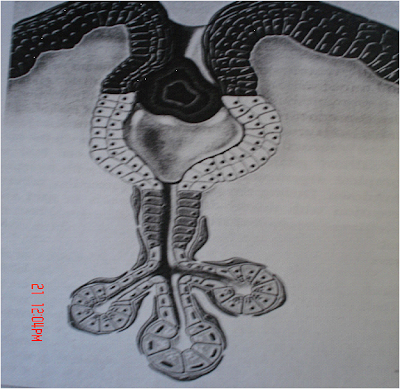Congratulation! You have just received your final prosthesis. We hope you will enjoy using it. There are a few things to keep in mind:
1. You may salivate more heavily for the next several days, until your mouth is accustom to the presence of the new prosthesis.
2. You may feel awkward when talking or speaking certain words, at first. With practice, your tongue will be trained to accommodate around the prosthesis and your phonic will become normal, again. Reading out loud may help expedite the process.
3. Sore spots are normal. Please give us a call to have your prosthesis adjusted, as necessary. We want to make sure that you will be able to use your new teeth, as comfortably as possible.
4. Occasionally, due to the morphology of the underlying jaw bone, the use of adhesive cream or paste may be required to attain satisfactory retention.
5. Keep your prosthesis soak in a water bath, with denture cleansing tablet, when not in use, especially during bed time.
6. Leave your new teeth out, during bed time, allowing your gum to breath regain normal circulation.
7. Clean your denture with a toothbrush and hand/liquid soap, over a half-filled sink or bucket of water, prior to each use.
8. Avoid chewing gum or eating sticky foods.
New full or partial Denture Instructions-in Detail
Introduction
I believe that you will be very successful with your new full denture or removable partial denture. When you begin to wear your new prosthesis there is an adjustment period where your usual mouth functions may need to be relearned. These include chewing, speech, swallowing, appearance of lip posture, and ridge comfort. The following suggestions may help you in adapting to your new prosthesis and in maintaining it.
Discomfort
Avoid pain by starting with easy but nutritious food to eat. Examples of a softer diet can include fish, eggs, cottage cheese, cooked potatoes, oranges and apple sauce. If you have discomfort, remove the denture and massage the painful area with your finger. Let the gums rest and then replace the denture. Continue to use your prosthesis until your next visit. If you fail to wear the denture, no sore will be visible and precise adjustments will be very difficult.
Chewing
Try to chew with food on both sides of your mouth. If food is bilaterally placed, the denture will be less likely to tip. Try not to bite with the front teeth as this may cause the back end of the denture to move off the gums. Biting with the side teeth will give better stability. Holding the top denture up with the tongue while chewing requires talent but this habit can be very useful.
Swallowing
Pain during swallowing may simply require a minor denture base adjustment.
Saliva
With the stimulus of new dentures your mouth may have more or less saliva for a few days. Be patient and the flow will return to normal.
Speech
Speech is a very complicated and dynamic process involving all parts of the airway and mouth. Your denture has been constructed to meet the demands of stability and retention during speech. Fortunately, people are very adaptable and speech sounds very good at the time of delivery. If speech does not sound right to you, give it some time and normal body adaptation will resolve your concerns. Practice reading aloud. Do not focus undue attention on the process.
Cleaning
To remove food debris and bacterial plaque from your prosthesis, brush vigorously with a stiff denture brush. Use either soap and water, tooth paste or a commercially available denture cleaning agent. The effervescent soaking solutions are also useful. Follow the manufacturer’s instructions. Wash your denture over a basin of water or a cloth. If they are dropped on a hard surface, the acrylic portion may fracture and any metal may bend.
Sleep
In general, take the dentures out or at least remove the lower denture for the night. This will allow the gums to rest. If this causes the jaw joints to hurt replace the dentures and use your best judgment for comfortable
sleep.
Recall
Post delivery follow-up usually requires three visits. More are available as needed. After the first year, annual recall visits are useful to monitor changes in the shape of the ridges, wear of the teeth and general oral health. If there are problems with pain, chewing, or with wear or breakage of the base or teeth, please make an appointment with the office at your earliest opportunity.




















